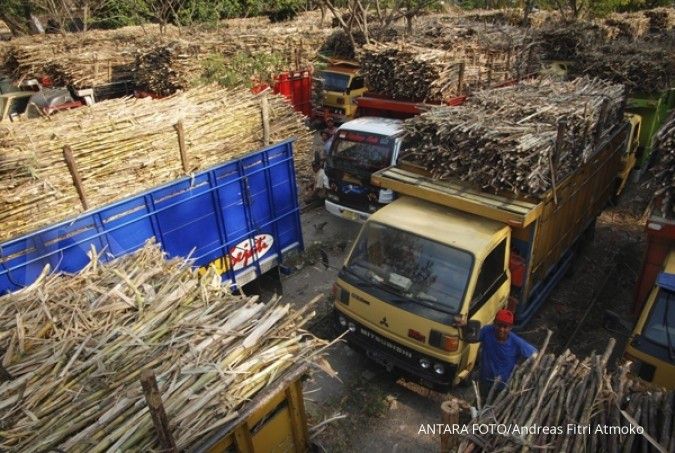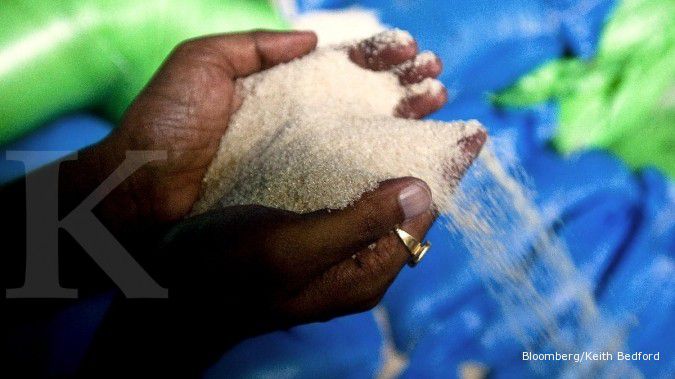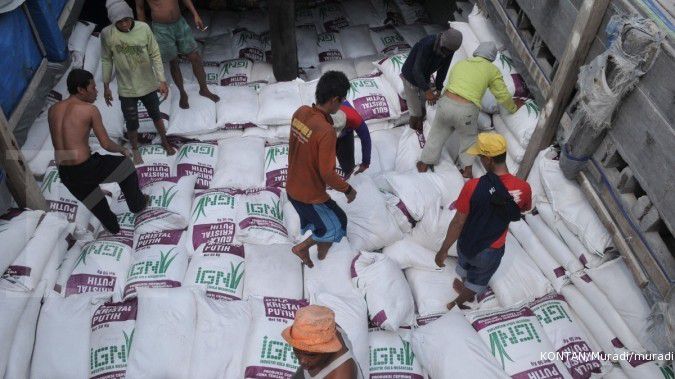JAKARTA. Implementation of sugar trade regulations should be tightly controlled because sugar is a strategic food commodity that needs protection, a legislator said. "The implementation of sugar regulations must be tightly supervised because sugar is one of the seven main food items which have strategic roles in the country's economic development and food sovereignty," Abdul Wahid, the deputy chairman of the Working Group on Sugar (WGS) of the House of Representatives (DPR), said here Friday. Abdul Wahid made these remarks in connection with a hearing in the House of the WGS and Indonesian sugarcane farmers who were represented by the executives of the Indonesian Sugarcane Farmers Association (APTRI). The other six food commodities which had strategic roles are rice, maize, soybean, and beef, in addition to chili of various species and shallot, Abdul Wahid, who is also a member of Commission VI on trade and industrial affairs of the DPR, said. In the appendix of the agriculture minister's decree, No.131/OT.140/12/2014, it was mentioned that within the efforts to build a national strategic food resilience, the government should set food production targets for seven main food commodities, he said. In order to achieve the targets set for these commodities, the agriculture ministry together with other ministries, non-ministerial institutions, regional governments and all stakeholders in the agricultural sector must be committed to supporting efforts to achieve the national food sovereignty target. "Therefore, in order to support the commitment, the government should allow subsidized fertilizers for farmers owing to the fact that the government has decided that sugar is one of the main food commodities which had strategic values and roles," the legislator said. Now, refined sugar (crystal white sugar), which should have been only used by the food and beverage industry is being leaked to consumer markets, he said. So, tight supervision is needed. The price of refined sugar is lower than that of sugar whose raw material is sugarcane. In the meantime, sugarcane farmers and sugar mills should increase their production to meet the target of achieving food sufficiency and food sovereignty, WGS Chairman of the DPR, Muhamad Farid Al Fauzi said. Earlier, the Chairman of APTRI HM Arum Sabil voiced the complaint of sugarcane farmers regarding the restriction in the use of subsidized fertilizers for farmers who are cultivating a plantation of over two hectares. Restrictions on the use of subsidized fertilizers disadvantaged farmers and made them reluctant to cultivate their plantations, Arum said during the hearing with the WGS of the House. "Therefore, we hope that the government will be consistent with its regulations, so that we can increase national sugar productivity on the one hand and help farmers to improve their welfare on the other," he said. Farmers also expected political support from the House by which the lawmakers will control the implementation of regulations, he said.
Tight control on sugar regulations needed
JAKARTA. Implementation of sugar trade regulations should be tightly controlled because sugar is a strategic food commodity that needs protection, a legislator said. "The implementation of sugar regulations must be tightly supervised because sugar is one of the seven main food items which have strategic roles in the country's economic development and food sovereignty," Abdul Wahid, the deputy chairman of the Working Group on Sugar (WGS) of the House of Representatives (DPR), said here Friday. Abdul Wahid made these remarks in connection with a hearing in the House of the WGS and Indonesian sugarcane farmers who were represented by the executives of the Indonesian Sugarcane Farmers Association (APTRI). The other six food commodities which had strategic roles are rice, maize, soybean, and beef, in addition to chili of various species and shallot, Abdul Wahid, who is also a member of Commission VI on trade and industrial affairs of the DPR, said. In the appendix of the agriculture minister's decree, No.131/OT.140/12/2014, it was mentioned that within the efforts to build a national strategic food resilience, the government should set food production targets for seven main food commodities, he said. In order to achieve the targets set for these commodities, the agriculture ministry together with other ministries, non-ministerial institutions, regional governments and all stakeholders in the agricultural sector must be committed to supporting efforts to achieve the national food sovereignty target. "Therefore, in order to support the commitment, the government should allow subsidized fertilizers for farmers owing to the fact that the government has decided that sugar is one of the main food commodities which had strategic values and roles," the legislator said. Now, refined sugar (crystal white sugar), which should have been only used by the food and beverage industry is being leaked to consumer markets, he said. So, tight supervision is needed. The price of refined sugar is lower than that of sugar whose raw material is sugarcane. In the meantime, sugarcane farmers and sugar mills should increase their production to meet the target of achieving food sufficiency and food sovereignty, WGS Chairman of the DPR, Muhamad Farid Al Fauzi said. Earlier, the Chairman of APTRI HM Arum Sabil voiced the complaint of sugarcane farmers regarding the restriction in the use of subsidized fertilizers for farmers who are cultivating a plantation of over two hectares. Restrictions on the use of subsidized fertilizers disadvantaged farmers and made them reluctant to cultivate their plantations, Arum said during the hearing with the WGS of the House. "Therefore, we hope that the government will be consistent with its regulations, so that we can increase national sugar productivity on the one hand and help farmers to improve their welfare on the other," he said. Farmers also expected political support from the House by which the lawmakers will control the implementation of regulations, he said.




